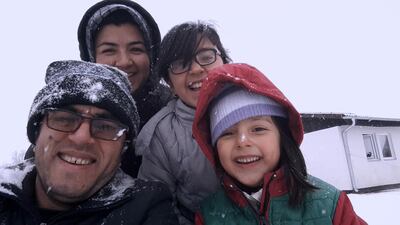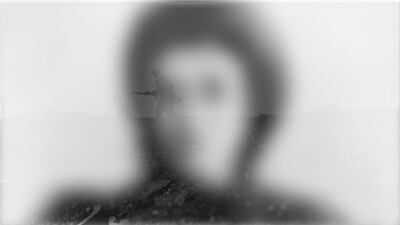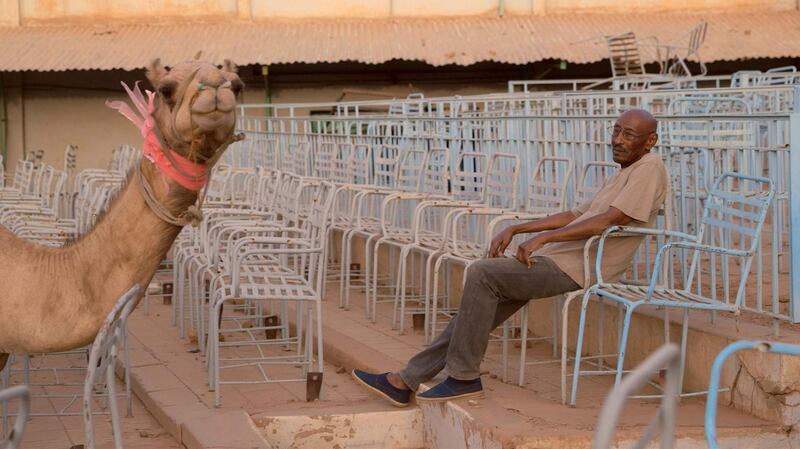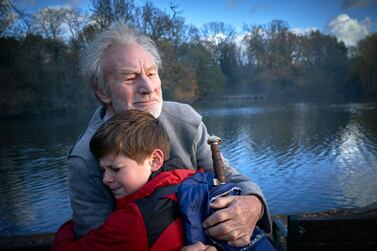Berlin Film Festival’s annual celebration of all things cinematic returns on February 7, and with the final line up for this year announced on Tuesday evening, we take a look at some of the regional highlights from this year’s event.
Midnight Traveller, Hassan Fazili, 2019

Hassan Fazili and his wife Fatima Hussaini, also a filmmaker, turn protagonists of their own documentary, which raises questions of the morality of turning human misery into great footage. When the pair received a death threat from the Taliban, they decided to flee their native Afghanistan for the safety of Europe. Their journey took several years via the Balkan route, and the family used their mobile phones to document every step of the way.
An Unaired Interview, Muhammad Salah, 2018
Ibrahim, a waiter in a local Egyptian coffee house, is interviewed for an obscure television show called Struggle and Success. Jumping off from outtakes of the interview, the film delves deep into Ibrahim's life to see who he really is, his political views, how he deals with the women and children in his life, and what his take is on what he calls the conflict between men and woman in general.
Of Fathers and Sons, Talal Derki, 2017
Talal Derki brings his Oscar-nominated documentary to Berlin for a pre-awards screening. The film sees Derki return to Syria, where he gains the trust of a radical Islamist family and shares their daily life for over two years. His camera focuses mainly on the children, providing an extremely rare insight into what it means to grow up with a father whose only dream is to establish an Islamic Caliphate. Osama, 13, and his brother Ayman, 12, are at the centre of the story. They both love and admire their father and obey his words, but while Osama seems to be following the path of Jihad, Ayman wants to go back to school. The film captures the moment when the children have to let go of their youth and are finally turned into Jihadi fighters.
Talking About Trees, Suhaib Gasmelbari, 2019
There's a strong Sudanese showing at this year's event, with a programme of shorts also screening in the Extended Forum section. This feature-length doc looks the pick of the bunch though. Suliman and three further members of the ‘Sudanese Film Club’ have decided to revive an old cinema. They are united not only by their love of cinema and their passionate desire to restore old film stock and draw attention to Sudanese film history, but also by the fact that they have all enjoyed a film education in exile. Tirelessly, they try to get the cinema’s owners on their side and make the place operational again, but repeatedly find themselves up against considerable resistance. In the meantime, they sit together and talk about the past – including their experiences of persecution and even torture as oppositional artists.
Une Rose Ouverte, Ghassan Salhab, 2019

In this essay film tribute to Rosa Luxemburg, Salhab places the revolutionary socialist’s letters from prison over metaphorically charged images of the Middle East and a snow-covered Berlin to form a complex multi-layered collage. Numerous excerpts from the radical socialist’s lyrical letters form the threads running through this essayistic collage. They are joined by modern-day shots of wintry Berlin, a two-person reading in Beirut, archive material from the First World War, a battle song of the labour movement, traces of Nico, Gerhard Richter, Brecht, Breton, voices, sounds and music. Together, they form a polyphony of visually and acoustically overlapping layers.
Mosul 980, Ali Mohammed Saeed, 2019
Saeed’s Iraqi short follows a young Yazidi woman who risks an escape from the clutches of the Islamic State. Dressed in an ISIS militia uniform, she emerges from the trunk of a car to find herself in the midst of a devastated city, Mosul. In search of shelter, she climbs into a tank.
De quelques evenements sans signification, Mostafa Derkaoui, 1974
This unique filmic experience was conceived as an independent and collective effort of militant filmmakers, actors, musicians, poets and journalists at a time of heightened repression on freedom of expression in Morocco and was funded by the sale of paintings by several contemporary painters. The film was first screened in Paris in 1975 but was immediately subjected to censorship and forbidden from exhibition and export. It was forgotten until a negative print was found in the archives of the Filmoteca de Catalunya in 2016 and restored there. 45 years after its completion, the film will finally be released.






